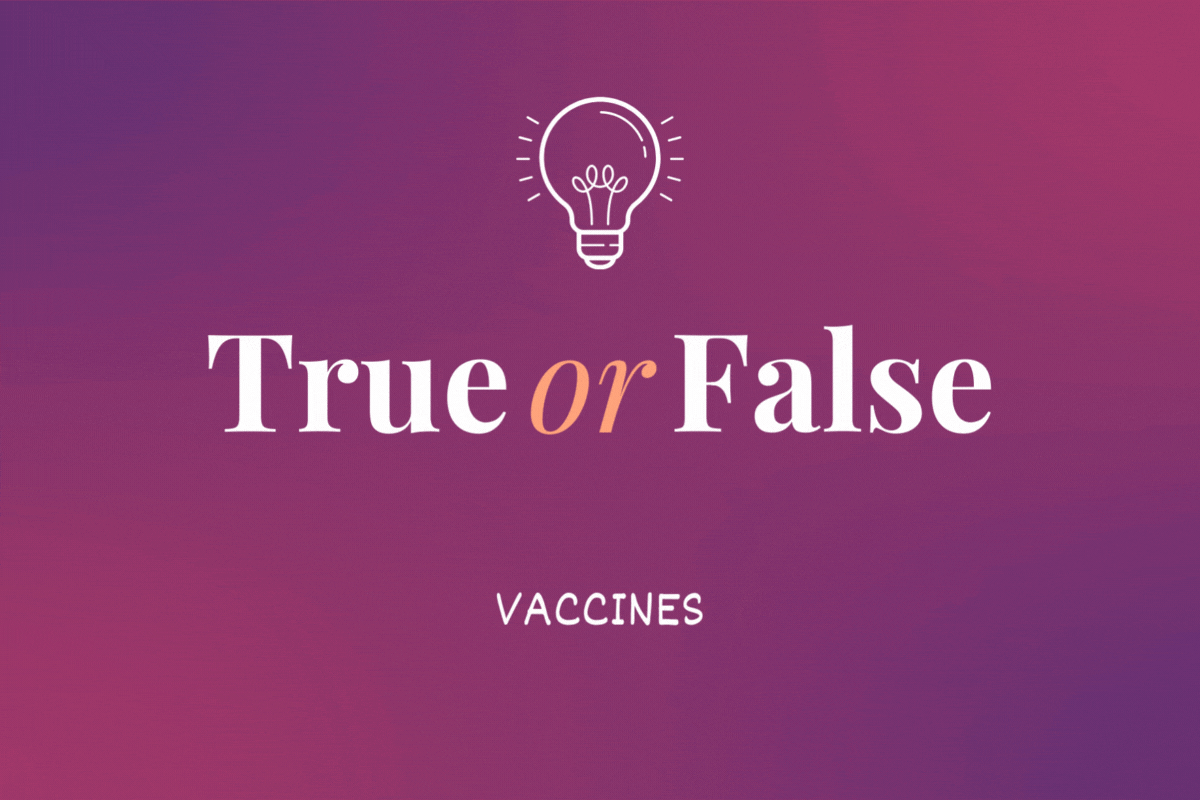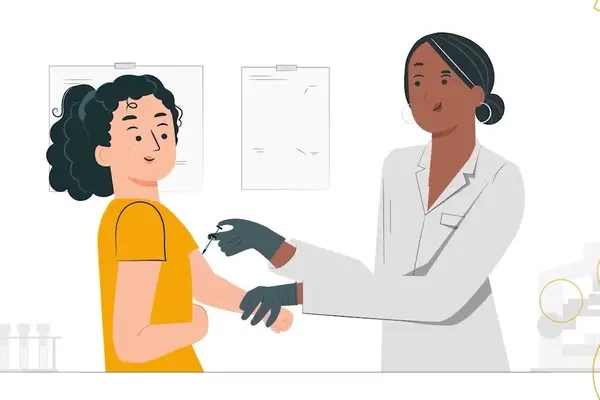Did you know that adults need vaccines, even if they got all their vaccines as a child? Some vaccines you received should last your lifetime, while others need boosters years later. There are also a few vaccines that you might need once you reach a certain age or if you are in a particular situation. But most adults in the United States —up to 75% — are missing at least one routine vaccination.
Although there are some exceptions to vaccine recommendations, here are the top 10 vaccines that adults should discuss with their healthcare provider.
1. Influenza (the flu)
The flu usually causes between 9 million and 41 million illnesses and up to 52,000 deaths in the U.S. annually. Influenza viruses change from year to year, so annual flu vaccines help prevent serious illness. The flu has affected fewer people since the Covid-19 pandemic began, bu cases will probably rise again now that masking and social distancing for Covid are no longer required.
2. Tetanus (lockjaw)
Tetanus is a serious, hard-to-treat illness, but it’s rare if you’ve had the tetanus vaccine. Adults should get a booster every 10 years. If you get a serious cut or wound and it’s been more than five years since your last dose, you might need an extra booster. People who are pregnant should receive a Tdap vaccine (against tetanus, diphtheria and whooping cough) with each pregnancy.
3. Human papillomavirus (HPV)
Most cervical cancers and some other types of cancer, such as head and neck cancers, penile cancer, anal cancer, and more, are caused by the human papillomavirus. If you are 26 years old or younger and did not get the HPV vaccine, the CDC recommends you get the three-dose vaccination series. Adults between ages 27 and 45 should discuss the vaccine with their healthcare provider.
4. MMR (measles, mumps, rubella)
If you were born before 1957 and you received at least one MMR vaccine dose, you may need another one. If you weren’t vaccinated as a child, you should get one. The CDC says that if you aren’t sure whether you had the MMR vaccine or if you had any of the illnesses the vaccine prevents, it is safe to get the vaccination anyway.
If you received your MMR vaccine in the 1960s, you should speak with your doctor or nurse practitioner. Whether you need a booster will depend on the type of vaccine you had.
5. Varicella (chickenpox)
If you didn’t have chickenpox as a child, you should ask about the vaccine now. This vaccine not only prevents chickenpox but also helps prevent you from getting shingles (herpes zoster), which is caused by the chickenpox virus.
6. Shingles
Whether you need the shingles vaccine depends on your age. The CDC recommends you get this vaccine if you are 50 years old or older. Anyone who has had chickenpox can develop shingles. When someone gets chickenpox, the virus stays in their system. It can reactivate at any time, causing this painful condition. The shingles vaccine, given in two doses two to six months apart, reduces the risk.
7. Pneumococcal
The pneumococcal vaccine is another one that depends on your situation. All infants should receive a series of the pneumococcal vaccine, as well as older children with certain medical conditions. It is given to all adults 50 years or over, or adults with special medical needs. This vaccine helps prevent a certain type of pneumonia, which causes thousands of deaths a year.
8. Meningococcal
The meningococcal vaccines help prevent bacterial meningitis from five groups of bacteria: A, B, C, W and Y. There are two types of vaccines: one for groups A, C, W and Y (MenACWY), and another for group B (MenB). Most teens have been vaccinated against meningitis A, C, W and Y. Older teens and adults who live in group living situations like dormitories or have a weakened immune system should be vaccinated against meningitis B. People who travel to areas where there are a lot of meningococcal infections should also consider getting the MenB vaccine.
9. Hepatitis
There are five types of hepatitis, a liver disease. The most common ones we hear about are hepatitis A, B and C. There is no vaccine for hepatitis C, but there is one for hepatitis A and hepatitis B. You can get a vaccine that protects you from both, or you can get one for just A or B. Each vaccine has a different schedule, so ask your healthcare provider if you should get vaccinated and if so, which one you should get.
10. Covid-19
Covid-19 vaccines are not 100% effective at preventing the virus, but they reduce the risk and are very effective at preventing serious illness. By getting the initial doses and the boosters, you lower your risk of hospitalization and death from this virus.
Getting routine vaccinations is an important part of keeping healthy. Speak with your healthcare provider about what vaccines you may need, and when you should get them.
This resource was created with support from Merck.
- How to Access and Prioritize Your Vaccines - HealthyWomen ›
- Here's Why You Shouldn't Skip Your Immunizations - HealthyWomen ›
- I Wish I’d Known About the Shingles Vaccine Sooner - HealthyWomen ›
- Where Can You Get Vaccines? - HealthyWomen ›
- What You Need to Know About Viral Hepatitis A, B and C - HealthyWomen ›
- Talking to Your Provider About the HPV Vaccine for Adults - HealthyWomen ›
- Clinically Speaking: Q&A About Pneumococcal Disease - HealthyWomen ›
- Understanding the Different Types of Covid-19 Vaccines - HealthyWomen ›
- The Importance of the Tdap Vaccine During Every Pregnancy - HealthyWomen ›
- Common Diseases and Their Vaccines - HealthyWomen ›
- Adults Need Vaccines, but Not Everyone Gets Them - HealthyWomen ›
- Vaccines Before Pregnancy - HealthyWomen ›
- Facts About Measles - HealthyWomen ›







